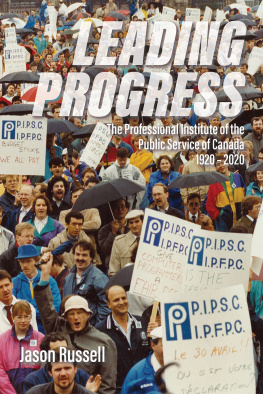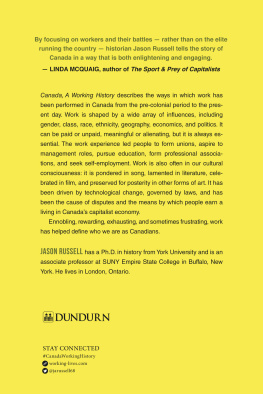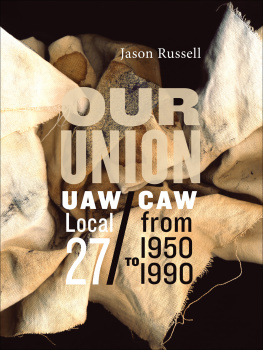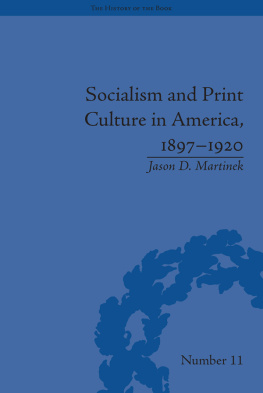Leading Progress
The Professional Institute of the Public Service of Canada
19202020
Jason Russell
BETWEEN THE LINES
Toronto
Contents
Chapter 1
Starting as Professionals, 192069
Chapter 2
We Are a Union, What Do We Do Now?
197079
Chapter 3
Achieving Better Results for Members, 198089
Chapter 4
Nothing Can Be Taken for Granted, 199099
Chapter 5
Into a New Century, 200009
Chapter 6
Stepping Up to a Larger Union Stage, 201019
Praise
Leading Progress, given the COVID-19 crisis, is a timely reminder of the profound importance of having and maintaining a professional public service. This is a history of a union and more. Important questions of capacity, professional autonomy, and democratization of administration are raised throughoutand, crucially, the relationship of professional workers to the state as employer and the broader labour movement and working class.
Bryan Evans, Professor in the Department of Politics and Public Administration, Ryerson University
The many characters, communities, and causes that Leading Progress captures accurately depict the heart and soul of all unions, past and present. With density now greatest in the public sector, the value of professional associations has never been more important.
Dave Bulmer, President, AMAPCEO Ontarios Professional Employees
In a crisis, the value of Canadas professional public service is suddenly obvious to everyone. But in normal times, whether they know it or not, Canadians owe a debt of gratitude to the dedicated men and women who ensure the safety of our food and the health of our environment. Im delighted we now have a rich history of PIPSCs remarkable story.
Hassan Yussuff, President of the Canadian Labour Congress
Jason Russells stirring and comprehensive history of the first century of PIPSCs innovative organizing among public professionals tells a marvelous story about the power of unionismnot just to lift the standards of work, but to build a stronger economy and society.
Jim Stanford, Economist and Director, Centre for Future Work
A clear, thorough study of a large, important group of Canadian public-sector workersthe professionalswho were historically cautious unionists more inclined to collaboration than confrontation, until neoliberal governments disrupted their working lives. Jason Russell has made excellent use of the substantial archival record, but even more impressively, he has woven in the voices of a large number of union members he interviewed. A useful addition to the shelf of modern labour history.
Craig Heron, Professor Emeritus, Department of History, York University
In Leading Progress, Jason Russell has accomplished a rare feat. He has written a book that is at once an incisive overview of labour and working-class history, as well as a detailed institutional biography that vividly captures the birth and transformation of the PIPSC from one of reluctant unionism to being at the centre of many of todays most pressing struggles for social and economic justice.
Carlo Fanelli, Assistant Professor and Coordinator of Work and Labour Studies, York University
Leading Progress is an illuminating, comprehensive, and candid history of the Professional Institute of the Public Service of Canada. Jason Russells account of how PIPSC continually balanced its goals of representing professional public servants and non-partisanshipeven as it became a sophisticated union increasingly engaging in advocacy, defending expertise and scientific expertise, and responding to the needs of the many professional groups it representsis alone worth the read.
Evert Lindquist, Professor, School of Public Administration, University of Victoria
Public sector unions remain one of the most vital structures for the protection of workers rights, but they also underpin many important values of our democratic institutions, including independence, neutrality, the unbiased use of evidence, equal treatment, and inclusion. In this excellent history, Jason Russell reminds us that we cannot rely on politicians alone to protect the values of our democratic system, and PIPSC exists to defend not only their hard-won rights, but also the rights of all Canadians.
Ken Rasmussen, Director, Professor and Graduate Chair, Johnson Shoyama Graduate School of Public Policy, University of Regina
Leading Progress fills an important gap in labour studies literature, as it considers public employees and professionals, two constituencies whose unions are often understudied. By looking at the history of PIPSC inside and out, it gives a voice to many staff, leaders, and members of the organization through extensive interviews, showing that a union is not only a structure but also the reflection of workers identities and the ways they relate to their jobs as well as their communities.
Thomas Collombat, Associate Professor of Political Science, Universit du Qubec en Outaouais
Illustrations
Figures
11. PIPSC founder J. B. Challies
12. PIPSC office at 786 Bronson Road, 196489
13. The 195960 PIPSC National Board of Directors
21. PIPSC cartoon depicting an idealized vision of labour relations
22. A PIPSC nurse at the Blood Indian Hospital in Cardston, Alberta
31. Leroy Stone being presented the PIPSC Gold Medal award
32. The Quebec Regional Council
33. A PIPSC member working at the National Research Council
41. The PIPSC office at 53 Auriga Drive, Ottawa, 19902006
42. Dr. John Polanyi speaking at PIPSC, 1993
43. Incidence of Fiscal Austerity in Publications, 19702000
44. Incidence of Privatization in Publications, 19702000
51. Eddie Gillis and Michle Demers
52. Lauren Jain, the 2005 PIPSC Scholarship winner
53. The 2001 PIPSC Staff Baseball Team
61. PIPSC office at 250 Tremblay Road in Ottawa
62. Nix Phoenix
63. APTN Indigenous Day, 22 June 2019, Whitehorse, Yukon
64. The 2019 PIPSC National Executive Board
C1. Living Current and Past PIPSC Presidents, 2019
Table
41. Bargaining Unit Strikes, 19762001










